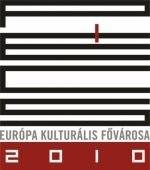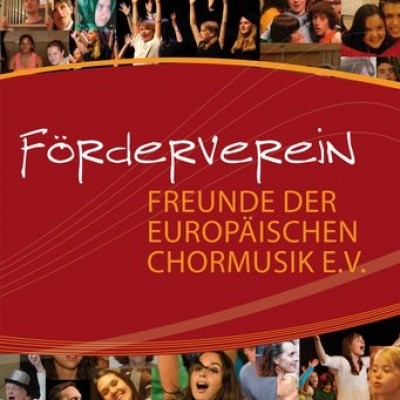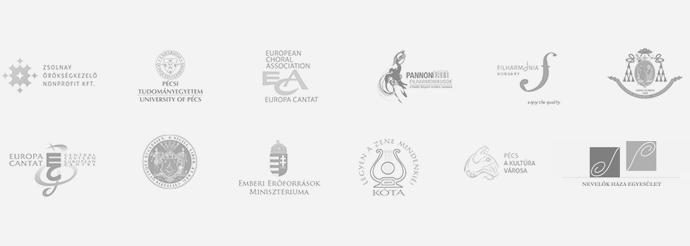Pécs is the fifth biggest city of Hungary located in the South-Western part of the country, with a buzzing cultural life and an outstanding choral movement. The city has already hosted the EUROPA CANTAT festival in 1988, a historic moment both for Pécs, Hungary and the European Federation of Young Choirs at that time, as the festival was organized for the first time ever in the Eastern part of Europe, behind the “Iron Curtain”.
The city went through major changes during 2010 when Pécs was European Capital of Culture. Public squares were renovated, a new concert hall, the Kodály Centre was built and the Zsolnay Cultural Quarter was created from an old porcelain factory.
You will have the chance to discover all these venues during the festival, as programmes will be organized all over the city!
© Video by Beni János and Gábor Bányai
The music programme of the EUROPA CANTAT XIX Pécs 2015 festival has been developed along three guidelines, with a strong reflection on the unique qualities and atmosphere of the host city:
CROSSROADS of cultures, religions and choral identities
ROOTS AND FRUITS – heritage and innovation, from folk traditions to new musical genres
OPEN GATES – open up to meet people and new choral music of undiscovered richness
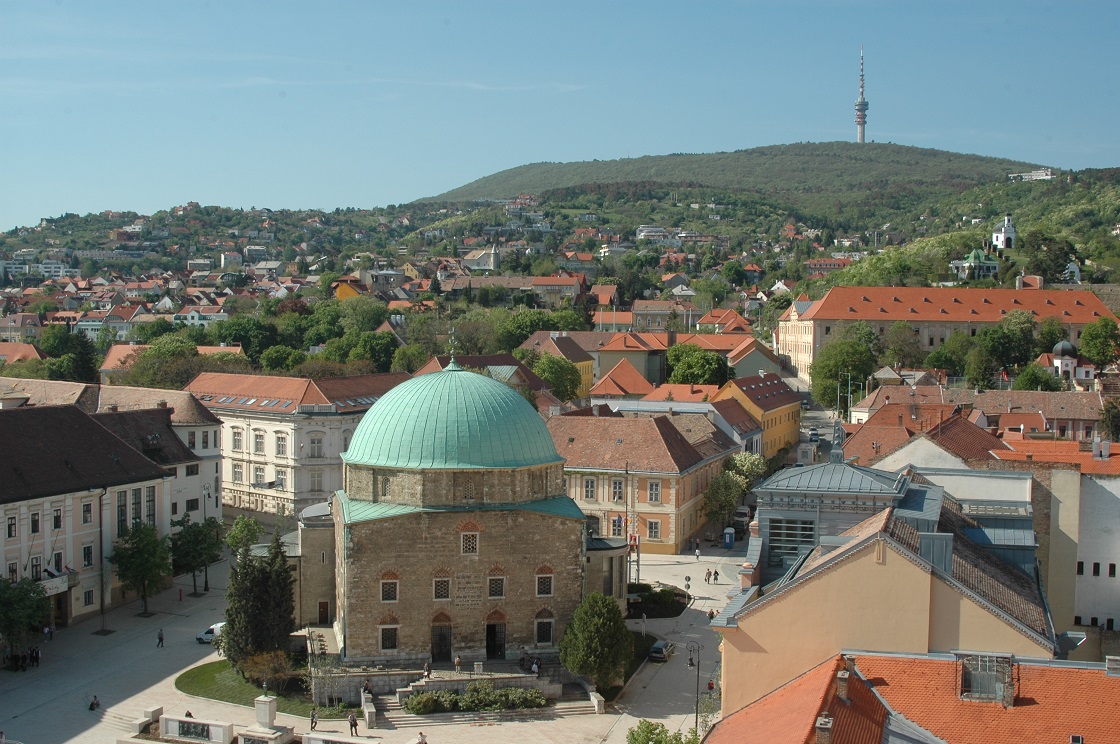
Pécs, the city of culture
Owing to the two-thousand-year-old culture, the Mediterranean ambience, and perhaps the good wines, Pécs has become home to many world-famous artists of various styles ranging from Impressionism to Bauhaus and op-art. The Lonely Cedar of Csontvary, the hypnothizing zebras of Vasarely, the Bauhaus chair of Breuer, the ceramic masterworks of the Zsolnay family – they all come from the city of culture and inspiration. The city is famous for its museums, rich art life and festivals and it attracts numerous visitors due to its intellectual, cultural and historical values.

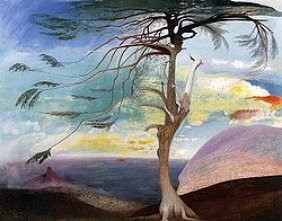
It’s festival season throughout the year in Pécs! Celebrate culture and life with us!
Take your seat in the heart of the city, enjoy the company of your friends and some fine local wine and experience the million colours of the cultural kaleidoscope buzzing around you. Be it theatre, youth, spice, books, wine and wine songs – you will find your topic of interest from late Spring to Winter, somewhere in the city centre.
As European Capital of Culture in 2010 Pécs went through spectacular changes and it became richer with unique and world standard venues, such as the Knowledge Centre, the Kodály Centre and the Zsolnay Cultural Quarter.
Knowledge Centre with its Hive, the source of all knowledge is the place where everyone can find the books they are looking for, in all categories. But it functions also as a conference venue, such as the neighbouring Kodály Centre, named after the famous Hungarian composer, Zoltán Kodály, developer of the Kodály Method.
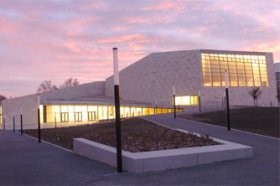
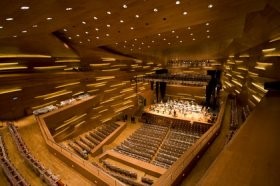
Kodály Centre is the new home of music in Pécs with its state-of-the-art structure and acoustics, praised by the resident Pannon Philharmonic Orchestra and guest performers, such as Maxim Vengerov, Al Di Meola, The King’s Singers and the Voca People.
Take a 3D Tour in the Kodály Centre.
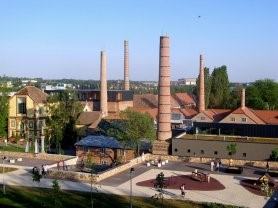
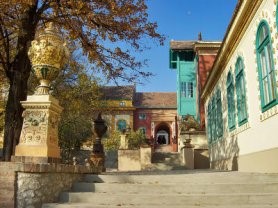
If you pass the concert hall, you can already see some tall, painted chimneys in the close distance. You are on the right track to the Zsolnay Cultural Quarter, the biggest cultural complex of East-Central Europe. If you enter one of the gates of the ‘Zsolnay’, you will be enchanted by the wonders awaiting you here. On the former factory site there are theatres for the young (Bóbita Puppet Theatre) and the somewhat elder (Janus University Theatre), permanent exhibitions presenting periods from the glorious past (the Gyugyi Collection, the Pink Zsolnay and the Zsolnay Family- and Factory History Exhibiton), a digital Planetarium an interactive science playhouse (Labor), a large gallery (M21), two concert halls (E78 and the Liszt Concert Hall), a library (American Corner) and restaurants, cafés, gift shops, playgrounds, squares…plus buildings where some 300 university students from two faculties are influenced by this inspirative environment.
Take a 3D Tour in the Zsolnay Cultural Quarter.
Choral life
The musical life of the town is highly developed and choral art has a distinguished position. In the past 50 years, over 300 different and prestigious prizes, diplomas and awards were given to the singing communities of Pécs. The city has been hosted several choir festivals, including the EUROPA CANTAT X festival in 1988 and the Pécs Cantat in 2010.
In the past 50 years, over 300 different and prestigious prizes, diplomas and awards were given to the singing communities of Pécs and shining memories of international choral competitions, Choir Olympics and festivals. The following choir events are organized regularly in the city: International Chamber Choir Festival, European/ World Convivial Winesong Festival for Male Choirs, Bartók-Kodály Workshop for Conductors, and Workshop for Youth Choirs.
No wonder that Pécs was chosen to host the EUROPA CANTAT X. Festival in 1988, behind the Iron Curtain, for the first time in history. The “legendary 10th” is still in the minds of those 3672 people who took part, as well as in the collective memories of the Pécs inhabitants.
A little musical background of Pécs
The musical life of the town is highly developed. Organized state music education has over 200 years of history. In the early 18th century the Episcopate was the centre of musical life, but in 1788, the local state school had already a music section. In 1811, György Lickl a contemporary of Mozart and a disciple of Haydn, moved to Pécs from Vienna and founded the Musicians’ Society (Tonkünstler Sozietät). His activity gave a boost to the development of the musical life of the town. Over the years Mr Lickl contracted musicians from Vienna, and Pécs soon had the best orchestra in Hungary – the predecessor of the Pannon Philharmonic Orchestra of our times.
Music settled down in the Pécs homes and local society, and the good education resulted in fine instrumentalists as well as sophisticated audience. The various music societies, church and school choirs have established the cult of choir music which is still so vivid in town.
“Music should belong to everyone…” (Kodály Zoltán)
Kodály Zoltán came to Pécs to rest and relax in the autumn of 1945. He visited however, the college of music, where an experimental course was started with 139 students. The so-called preparatory students learned musical reading and writing at the age of 8 and 9, with the help of relative solmization, well before their instrumental training had started. Kodály took part in the work himself, and as a result of these experiments, he announced his programme of the new Hungarian music education in the autumn of 1945, in Pécs – this is what the world knows as Kodály method.
Bárdos Lajos, another outstanding figure of the Hungarian choir culture had also good and deep contacts with Pécs, dedicating several compositions to the excellent choirs of the town and Baranya County.
These excellent choirs have probably the richest treasury for a town of 170.000 inhabitants: 300 international prizes from all corners of the world in the past five decades, which shows that remarkable quantity goes together with high quality in Pécs. But what is worth more than any prize or diploma, is the fact that – thanks to the brilliant musicians, teachers, conductors and singing communities – Pécs is a human measured, art-loving and atmospheric, “musical” town. Whether professional or not, makes no difference, since “Music should belong to everyone” – as Kodály stated.
Yes, music belongs to everyone in Pécs – it is difficult to find a “day off” when no opera performance, folk or jazz, symphony or choral, organ or chamber music concert is being held somewhere, or no choirs or instrumental ensembles rehearse… To get a massive high peak, you need a firm basement – and the Pécs music education as well as musical life has this firm basement.
Throughout the years, the town and its choirs got wide and comprehensive experience in organizing international choral events: competitions, festivals, workshops for conductors, etc.
Pécs has been hosting the well-known Chamber Choir Festivals since 1964.
In 1988, with the participation of 3.000 singers from all over the world, Pécs and Europa Cantat broke the Iron Curtain down, with the strength of singing.
Since 1993, the European and World Convivial Wine Song Festivals await the best male choirs to Pécs and to its vicinity to celebrate wine, music and friendship together.
Regional treasures
We recommend the following extra programs during festivals to discover the unique values of Hungary, Pécs and its countryside:
- Open Dance events: a unique possibility to discover the traditional dances of Hungary and the minorities living in the city. Followed by live music dance teachers show the steps and anyone is open to join!
- Hungarian Folk Music concerts
- Get Extreme! A theme park in the Mecsek forest, called Mecsextreme, offers a ride within the woods. Test your skills and bravery! Dare to walk between the trees or rolling off a hill in an orb?
- Wine tasting: Hungary has 22 wine regions. These regions boast not only with excellent quality wines but beautiful scenery and interesting sights. Pécs and its surroundings is an ideal place for wine growing, we recommend to taste the local wine cirfandli and to visit the Villány region famous for its red wine.
- Spa: relaxing in thermal water of a spa is a popular leisure time activity among Hungarians as well as for visitors. There are many spas in the neighbourhood of Pécs, the Harkány Thermal Spa has the greatest offer of wellness treatments.
- Experience the Renaissance times: visit a living Renaissance town, a special estate in Bikal. Meet real knights, pages, craftsmen, peasants, falconers and what not. Taste original cuisine and wines of the Middle Ages!
History
Multicultural city, heritage and innovation
Residents proudly speak about the beautiful 2000 year old town, Pécs. It was an important centre of the Roman province Pannonia that existed here under the name of Sopianae. The remains of late Roman, Paleochristian churches and cemeteries remind us of this fact in the vicinity of the present Cathedral. Several artifacts of the Roman times, the Middle Ages, the Turkish Occupation and the development of the middle class are built on one another or next to each other such as Gothic, Renaissance and Baroque houses, Christian churches and Islamic houses of prayer, mosques and minarets, baths and public buildings. The period of early Christianity is evoked by the Roman and early Christian relics and painted crypts that were excavated around the Cathedral. The Early Christian cemetery complex, the Cella Septichora, that is the second most significant after the Italian necropolises, was registered in the list of UNESCO World Heritage sites in 2000.
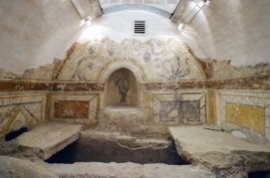
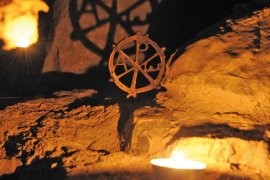
After the period of migration, Hungary’s first king, St. Stephen founded the episcopate in Pécs around 1009. During the reign of Anjou Louis “The Great”, in 1367, the town of Pécs became the seat of the first university of Hungary. The University of Pécs is still a dominant cultural and scientific centre – the biggest in Hungary with its 10 faculties and about 30.000 students.

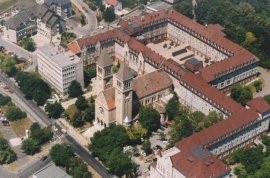
The development of the city can also be demonstrated by the foundation of new factories in the late 19th century. This started the production of the Zsolnay ceramics, the Littke champagne and the Angster organ that all have become world-famous since then.
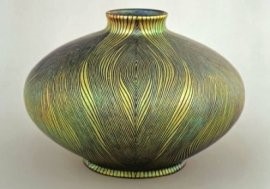
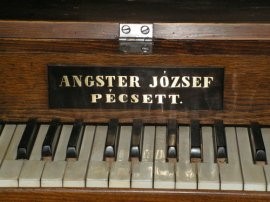
Currently Pécs has approximately 170.000 inhabitants, and it is an industrial-scientific-cultural centre of the region.
Due to the fact that there is a remarkable number of Croatian, German, Roma and Serbian minorities living here, there are several institutes operating in the town, safeguarding and fostering the culture of the national minorities.
Pécs attracts numerous visitors due to its intellectual, cultural and historical values. Thanks to these, the city deservedly bore the European Capital of Culture title in 2010.
3D tour of the city




